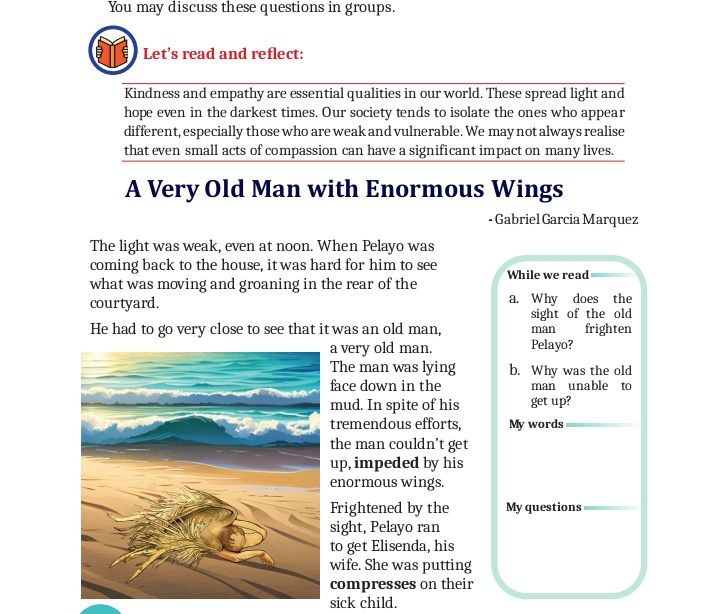To Posterity – Louis MacNeice – Detailed Study Notes
To Posterity – Detailed Study Notes
Introduction
Louis MacNeice’s poem To Posterity is a deeply reflective and philosophical work that explores the uncertainties of how future generations will perceive the present. MacNeice, an Irish poet closely associated with the Auden Group, often infused his poetry with themes of political awareness, realism, and existential thought. This poem encapsulates his concerns about the fleeting nature of time and the potential misinterpretation of history. He questions whether the lived experiences, struggles, and emotions of his time will be accurately understood by those who come after or if they will be reduced to mere historical records devoid of true depth.
Addressing the Future
The poem takes the form of an imagined conversation between the present and the future, where MacNeice addresses posterity directly. He seems to recognize the inevitable passage of time and the possibility that future generations might misunderstand or overlook the complexities of his era. Throughout history, people have often viewed the past through distorted lenses, shaped by political, social, or ideological biases. MacNeice highlights this concern, suggesting that those who come after may judge his time harshly or fail to appreciate the nuances of the struggles people endured. This raises a critical question: can history ever truly capture the essence of an era, or is it always filtered through the perceptions of those who record it?
The poet also reflects on the fragility of human experiences. Wars, revolutions, and social upheavals shape the present, but how much of this will remain relevant or meaningful to those in the future? MacNeice seems to be aware that history often simplifies the past, focusing on key events while overlooking the emotions, personal stories, and everyday lives of ordinary people. His poem serves as a reminder that behind every historical fact, there are countless untold stories and emotions that may never reach the pages of history books.
The Transience of Human Existence
A dominant theme in the poem is the fleeting nature of human life and achievements. MacNeice portrays history as an unstoppable force that moves forward, leaving behind people, cultures, and civilizations that once considered themselves significant. Every generation believes it is important, yet with the passage of time, its achievements may fade into obscurity. The poet critiques this arrogance, reminding readers that the present, no matter how crucial it seems, will eventually become the past, subject to the interpretations and misinterpretations of others.
Despite this inevitable fading, MacNeice suggests that literature, art, and poetry might serve as a means of preserving aspects of human experience. He expresses hope that through creative works, people of the future may connect with the emotions and realities of the past. Art has the unique ability to transcend time, capturing the essence of human thought and feeling in ways that mere historical records cannot. Through poetry, glimpses of past emotions, dilemmas, and aspirations can survive, even when the world that produced them has long vanished.
Skepticism and Hope
Throughout the poem, there is a tension between skepticism and hope. MacNeice is skeptical about whether the future will truly understand or care about the past. He doubts whether future generations will feel empathy for the struggles and anxieties of his time, fearing that they may look upon his era with detachment or even condescension. This skepticism is rooted in a broader concern about historical narratives—how they are shaped, edited, and sometimes manipulated to serve particular agendas.
However, alongside this skepticism, there is also a glimmer of hope. MacNeice does not entirely dismiss the possibility that poetry, storytelling, and human expression may serve as bridges across time. He suggests that emotions and personal experiences, when captured through art, can resonate beyond their historical contexts. This duality makes the poem rich in contemplation, as it does not provide a definite answer but rather invites readers to reflect on how history is remembered and interpreted.
Language and Style
MacNeice’s poetic style in To Posterity is reflective yet accessible. He avoids grandiose or overly complicated language, opting instead for a conversational tone that draws the reader into his thoughts. This approach makes the poem more engaging and personal, as if MacNeice is directly speaking to the future. Despite this simplicity, his words carry deep philosophical weight, raising profound questions about time, memory, and legacy.
The imagery in the poem reinforces its themes. MacNeice often uses metaphors of decay, time’s passage, and the fragility of human achievements to highlight the impermanence of the present. His choice of language conveys a sense of urgency, as though he is aware that his time, like all others, will eventually become a distant memory. By employing subtle but evocative imagery, he captures both the anxiety of being forgotten and the quiet hope that something of the past may endure.
Connection to MacNeice’s Other Works
To Posterity aligns with many of MacNeice’s broader literary concerns. Throughout his career, he wrote extensively about modernity, war, history, and human consciousness. As a poet who lived through tumultuous political times, including World War II and the changing cultural landscape of the twentieth century, MacNeice often examined how history affects individuals and how personal experiences shape the broader narrative of human civilization.
His other poems, such as Autumn Journal and Prayer Before Birth, similarly deal with themes of uncertainty, transience, and the role of art in preserving human identity. In Autumn Journal, for example, he reflects on contemporary events with both personal introspection and political awareness, much like he does in To Posterity. His ability to blend the personal with the universal makes his poetry timeless, as it continues to resonate with readers who face similar existential concerns in different eras.
Relevance and Modern Interpretation
In today’s world, To Posterity remains relevant as it speaks to the ongoing debate about how history is recorded and remembered. In an age of rapid technological advancements, political shifts, and cultural transformations, MacNeice’s concerns about historical misinterpretation are more pressing than ever. The way the present is documented—through digital records, media narratives, and personal storytelling—will shape how future generations understand our time. His poem serves as a reminder that history is not just a collection of dates and events but a complex tapestry of human experiences, emotions, and stories that deserve to be preserved with honesty and nuance.
The poem also resonates with modern discussions about historical biases, the erasure of marginalized voices, and the selective nature of collective memory. In an era where history is constantly being rewritten and debated, MacNeice’s message about the uncertainties of how the past will be perceived remains thought-provoking and significant.
Conclusion
To Posterity is a powerful meditation on time, memory, and historical legacy. Through its reflective tone and thought-provoking themes, the poem raises essential questions about how the present will be remembered, whether future generations will understand the struggles of the past, and whether poetry can serve as a timeless bridge between different epochs. MacNeice captures both the anxiety of being forgotten and the hope that literature and art can preserve something essential about human existence. His conversational yet profound style makes the poem both accessible and deeply philosophical, ensuring its relevance for readers across generations. Ultimately, To Posterity serves as both a warning and an invitation—to look at history with depth, to preserve human experiences with sincerity, and to recognize the fragile yet enduring nature of memory.




Comments
Post a Comment
Please share your feedback and questions